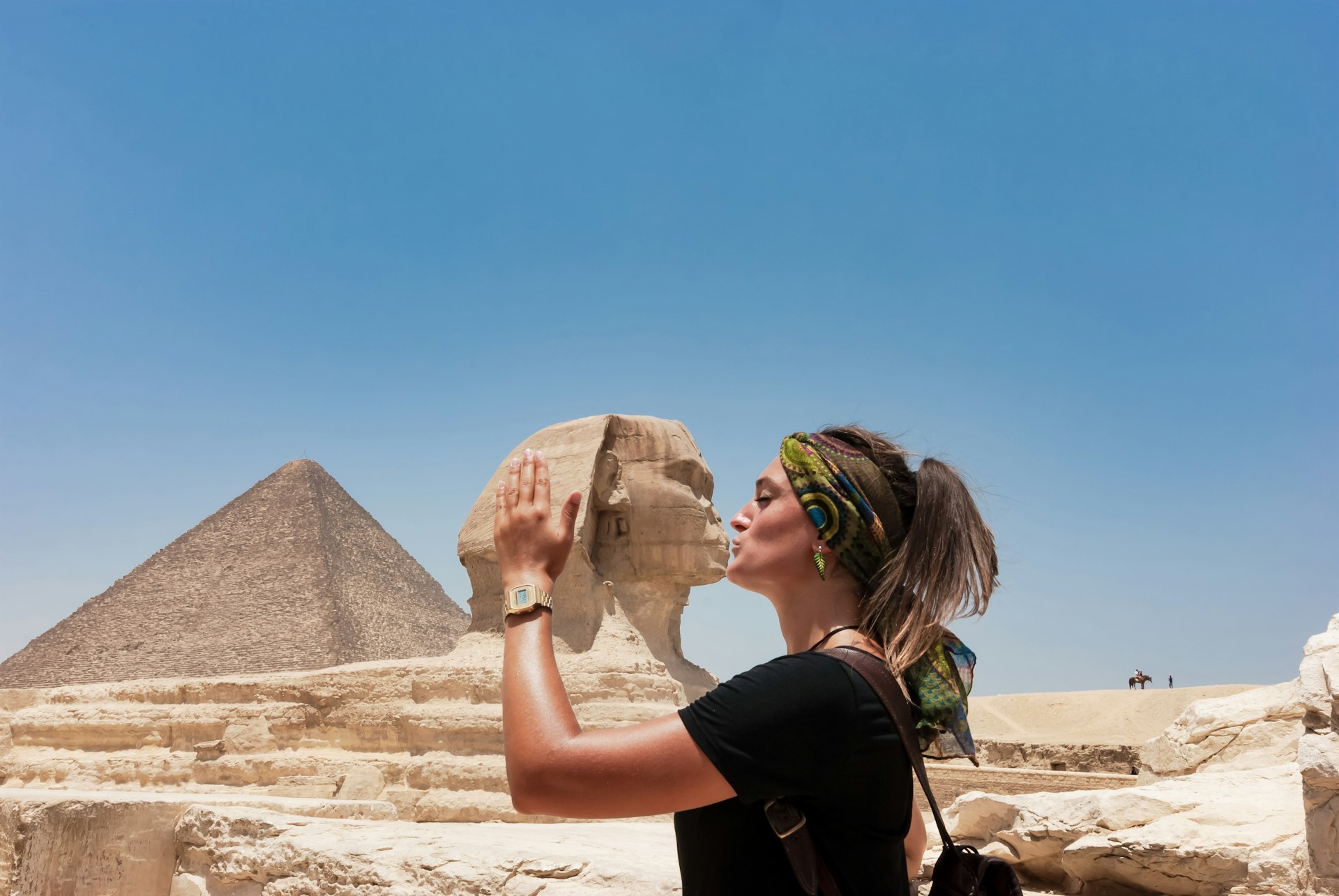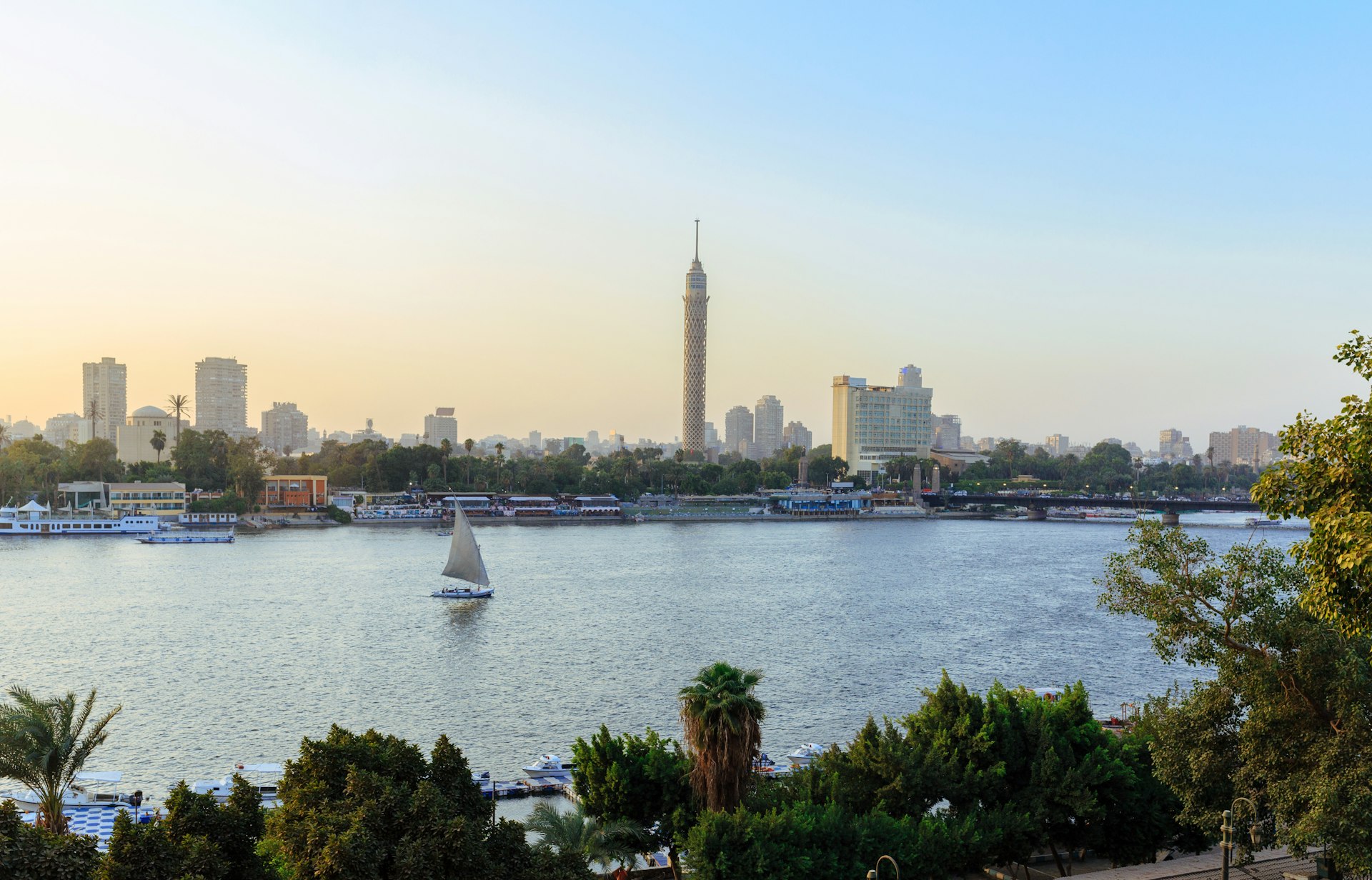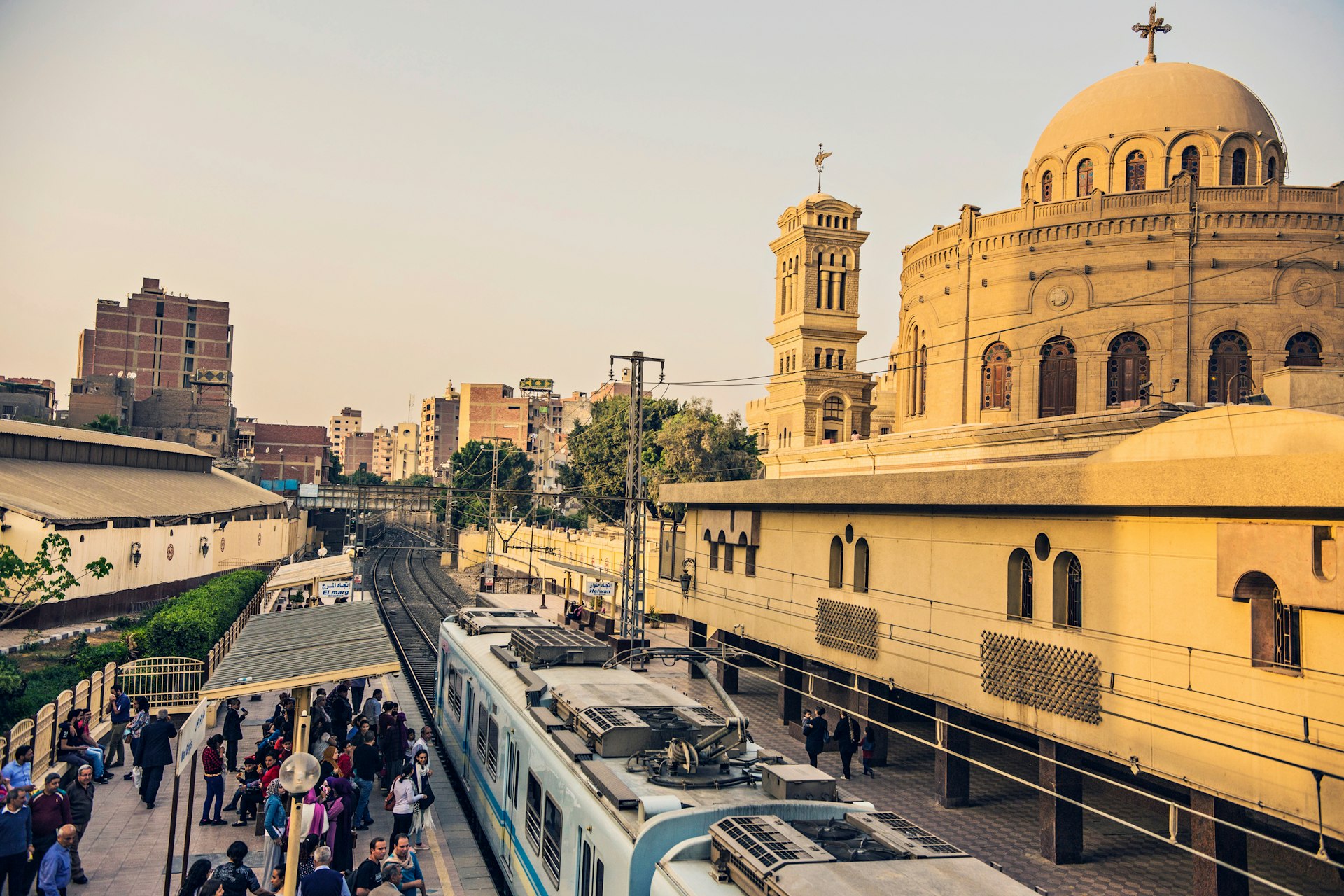I spent the first 30 years of my life in a small town in the Nile Delta, three hours away from Cairo.
Later, I moved to the capital and married an Englishman. All of a sudden, I was weighed down with the responsibility of being a fountain of knowledge about my adopted city for my new spouse. It’s rare to find an Egyptian who admits their ignorance, so I had to educate myself, which I did by pounding the streets.
One evening, I was walking in Old Cairo with a friend when he stopped abruptly by a nondescript wooden door. “This is where Napoleon lived,” he said, gesturing to a small metal star halfway up the door. “That’s his sign. Napoleon chose this spot so he could be in the middle of the bustle but remain incognito.” It sounds like every independent traveler’s dream.
Brushing the oppressive weight of colonial history aside for a second, if Napoleon could do it, so can you. And here’s how.
1. Download these apps to ease your travels in Cairo
Uber, Careem and Didi are all ride-sharing apps and using these will help you avoid arguing over fares with taxi drivers (especially at the airport). Alternatively, the metro is quick and cheap (and clean – here’s looking at you, Line 3). You can buy a multitrip card from any station.
2. Get used to time the Egyptian way
Time is a famously flexible concept in Cairo. Be ready for things to be delayed or changed at the last minute, or for a surprise wedding to cause a sudden postponement. Keep in mind that your plans might need to be more fluid than you had thought.
3. The true, unhurried Egyptian orders their fuul by the plate, not the sandwich
Join the locals on the table or bench at the fuul (fava bean paste) cart and order plates, not sandwiches, and you’ll get more bang for your buck. Say “etwassa!” (“be generous”) when you place your order and you’ll get an extra spoonful.
4. Just like the Pyramids, the best Turkish coffee is built on sand
You’ll find Paris-style kiosks serving coffee on every street corner. Ask if they have a rammala – a gadget that uses hot sand to brew Turkish coffee to perfection. Your cardamom-spiced coffee will arrive in a paper cup adorned with a wonky yet inspirational quote to set you up for the day.
5. Egyptians always have time for a swift drink
Dehydration is not likely to be an issue for you in Cairo because you can’t move for the amount of fresh juice shops. Try any of the energizing cocktails on offer, or go full Egyptian and down an ice-cold pint of sugarcane juice, a common local pastime. Insist that your juice comes with no ice, as it is likely to have been made with tap water, and “no (extra) sugar” depending on your preference for sweetness.

6. You can kiss the Sphinx but not your partner
Romantic travelers can display affection towards their partners, but doing so in public is essentially prohibited in Egypt by the “Public Morality” law, and is not recommended. You could expect to receive anything from cheers to scorn and even intervention by a concerned citizen or officials, with the potential to end in jail (the response to LGBTIQ+ people is likely to be harsher).
Unlike real kisses, virtual ones are positively encouraged, so make sure you have a picture of yourself kissing the Sphinx.
7. Egypt is not a gay-friendly destination
Being an open member of the LGBTIQ+ community is effectively illegal in Egypt and not accepted by the vast majority of Egyptians. I wouldn’t suggest broaching the topic of gay rights with the locals at one of Cairo’s ahwa (street coffee shop) as it will likely lead to a heated discussion.
8. Haggling over prices is part of the local experience
The top things to remember when shopping in Cairo:
- Never buy from the first shop.
- Ask the first three sellers about the price of the item you have your eyes on. Each one will teach you something that will help you discern high from low quality. Plus, you’ll get an idea of the average price.
- If an item/price grabs your attention, it’s essential to keep your face completely neutral and don’t let out an excited shriek. Instead, ask the seller what town they are from. You will use this intelligence later on to seal the deal.
- When you are satisfied you have found the best price, ask whether it’s final. If the sellers isn’t budging, tell them you found it cheaper elsewhere but that you “insist on buying it here because you, dear seller, are from *insert name of their city*!”
- If that doesn’t lower the price, change tack and ask what gift they would consider popping in at no extra cost. Say: “Khalas (alright), I will take it at this price, but how about I also take this mummified cat’s paw/amulet too?”
9. Show respect to those around you
Say “asslamu alayku” (peace upon you) before talking to someone. Don’t cross your legs when sitting in front of people, especially if they are older. If you do cross your legs, make sure the soles of your feet are turned away. Wearing loose-fitting clothes that do not display much flesh will reduce unwanted attention and keep you cool.
10. Avoid the scammers around the Pyramids
No visit to Cairo is complete without a trip to the Pyramids of Giza. The horse/camel guides who offer tours there know this and they may well try to trick you into paying more, leaving you out of pocket. Ask around for an idea of the average price, agree with the rider who puts you most at ease, and don’t pay until the ride has finished. Alternatively, take a sun hat and plenty of water and explore the site on foot.
11. Cheap street food comes with a side of poor hygiene
The low prices of some Egyptian street food may have you paying in other ways – such as sickness bugs and tummy upsets – as the standards of hygiene can be low due to unclean hands/surfaces and poor storage of ingredients. Try to evaluate the places most revered on Facebook, like in the (much-used-by-Egyptians) Traveller Experience or Travel Secrets groups. Keep your wits about you; there are always options to find the same local food at higher standards (and prices).

12. When in Cairo, drink in the Nile
Tap water isn’t (exactly) 100% recommended for drinking. Instead, buy a 9–19L water bottle for your accommodation and refill a smaller bottle to take with you while you’re on the go. That said, don’t leave without taking a sip from the river because, as the proverb goes, whoever drinks from the Nile is fated to return. Mentioning this will endear you to any Egyptian, whether you go ahead to drink from the river or not. A walk on Qasr el Nil bridge at sunset and a brief talk with a fisherman led to my husband being offered a tipple of Nile water.
13. Your safety is only partially in your hands
Most Egyptians believe their destiny is in God’s hands, not theirs. You will rarely find seat belts in cars and pedestrians are just another road vehicle. Bring a cross-body bag or fanny pack to ensure that the safety of your valuables is entirely (and literally) in your hands, especially in crowded spots like Khan Al Khalili.
14. Pharmacists can help with many ailments
You’d think Egyptians are raving hypochondriacs with the sheer abundance of pharmacies. True or not, Egyptians trust their local pharmacist, which is a good thing to know if you’re feeling under the weather and unsure whether to see a doctor. Pharmacists generally have a good level of English and can diagnose basic conditions as well as provide painkillers and other treatments.
Pharmacies are usually indicated by the word “Pharmacy” in English along with a cross symbol, a crescent moon symbol, a cup with a snake coiled around it, or a mix of all three.
15. If you really want to get to know Cairo, you’ll need to stay a while
One or two days are enough to “do” Cairo. But if you really want to know the place, you need to live there for at least a few weeks, establish routines and become adopted as a local. Some people liken Cairo to an open-air museum. For me, it’s an open-air library full of stories waiting to be told. Apply these top tips and learn more of your own as you hunt for those stories.
